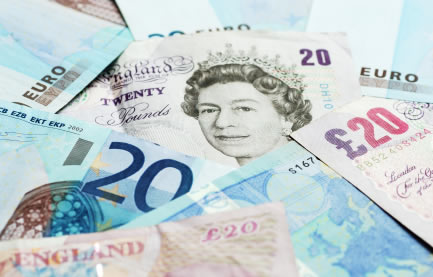EUR/GBP Exchange Rate Rises as EU Concerns over Italy’s Budget End
The Euro Pound (EUR/GBP) exchange rate is up today and trading within the region of £0.9006.
The Euro (EUR) strengthened over the weekend as the Italian parliament approved the country’s budget compromise with the European Union – effectively ending several months of strain between the EU and Rome.
The Vice-President of the European Commission, Valdis Dombrovskis, commented that this provided the basis for ‘balanced budgetary and economic politics in Italy’, however Dombrovskis warned that Italy ‘urgently needs to restore confidence in its economy to ease financial conditions and support investment.’
Pound (GBP) investors, meanwhile, were uninspired by Theresa May’s New Year’s Day speech yesterday in which she rallied for the UK to begin a ‘new chapter’, and urged MPs to back her withdrawal agreement, saying that if ‘Parliament backs a deal’ then ‘Britain can turn a corner’.
The Pound (GBP) has also been affected by rising concerns over May’s Brexit deal being rejected by Parliament, with debates set to begin again on 9 January. This will also be followed by a vote on the UK-EU withdrawal deal in mid-January.
Euro to Pound (EUR/GBP) Exchange Rate Increases Despite Manufacturing Slowdown in Germany
Today saw the release of Germany’s Markit Manufacturing Figures which fell at the fastest rate in 4 years to 51.5 against November’s 51.8 and drawing closer to contraction.
Phil Smith, the Principal Economist at IHS Markit, commented:
‘The darkening global economic picture has had ramifications for Germany’s outwardly focused manufacturing sector over the course of 2018, while the sequence of headwinds in the car industry in the latter stages of the year has been a further restricting factor.’
Euro (EUR) exchange rates were generally left unmoved by today’s release of the Eurozone’s Markit Manufacturing PMI figures for December, which confirmed a figure of 51.4 against last month’s 51.8.
EUR investors were moderately uplifted by French President Emmanuel Macron, however, as the President hit back at ‘yellow vests’ protestors in his New Year’s speech, commenting that ‘order’ would be maintained throughout France and that the country’s ‘future depends on our capacity to love each other and to love our nation.’
GBP/EUR Exchange Rate Drops as Renewed Political Divisions Dampens Confidence in Sterling
Pound (GBP) exchange rates, meanwhile, were hit by fresh criticism of Theresa May’s Brexit deal, with conservative MP, Sir Bill Cash, stating that he had made his New Year’s resolution ‘not to vote for the PM’s Withdrawal Agreement this January’.
Returning political pressures have also weakened the Pound, with the Labour leader Jeremy Cobyn coming under increasing strain after a poll showed that 72% of Labour loyalists are for a second-referendum. Corbyn has previously asserted that Brexit must go ahead.
Professor Tim Bale of Queen Mary University, who led the survey, commented:
‘Our survey of Labour’s grassroots clearly shows that Corbyn’s apparent willingness to see the UK leave the EU – a stance he has recently reiterated – is seriously at odds with what the overwhelming majority of Labour’s members want, and it doesn’t reflect the views of most Labour voters either.’
The Pound failed to benefit from today’s publication of the UK Markit Manufacturing PMI figures for December, despite a better-than-expected increase to 54.2 against last month’s 53.6.
EUR/GBP Exchange Rate Could Keep Climbing as Brexit Returns to the Spotlight
The EUR/GBP exchange rate is likely to be driven by political rather than economic forces in the coming weeks, with Brexit debates flaring up after the holiday period and Theresa May rallying to bolster Parliament’s support for her Brexit deal.
Tomorrow will see the release of the UK Construction PMI figure for December, which is predicted to decrease to 52.9 against last month’s 53.45, which will likely strengthen the EUR/GBP exchange rate.
EUR investors, meanwhile, will be looking forward to Friday’s release of Germany’s unemployment figures, with any signs of a decrease benefiting the single currency.
However, concerns over France’s continuing ‘yellow vests’ protests is dampening sentiment in the Euro, with worries that the protests will continue to pressurise the French government, perhaps in retaliation to Macron’s recent comments.



